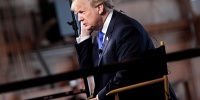
Image: 401(K)2012 Flickr https://www.flickr.com/photos/68751915@N05/6355318323/
An uncertain future
The global economy faces a year of rising interest rates and rising inflation, Warwick McKibbin writes.
As Yogi Berra once said “The Future ain’t what it used to be”. 2017 looks like being a particularly uncertain year for the global economy.
Foremost in the list of factors driving uncertainty is the impact of the international and domestic policy agendas of the Trump Administration. There are also major political issues in Europe with the Greece debt bailout back on the agenda and an important election in France in May. China continues to move from an export-led economy to a more balanced economy relying more on domestic demand but financed with high levels of debt.
Volatility, uncertainty and poor policy is bad for investment and therefore for overall economic growth. Yet, the number, complexity and interdependence of the possible future scenarios in 2017 is a boom for the scenario planning industry.
The details of actual policy changes in the United States are yet to be announced, but it appears likely that there will be significant tax reform, resulting in a large increase in the US fiscal deficit. The US equity markets appear to believe that a major growth enhancing policy will emerge. If Republicans in Congress can countenance a Trump presidency, they will probably overturn their fundamental opposition to higher government debt which blocked many of the Obama Administration attempts to stimulate the US economy when it would have been a useful contribution. A large fiscal stimulus, through infrastructure spending, military expansion and tax cuts, at a time when the US economy is close to full employment and rising inflation will drive up long and short term interest rates and the value of the US Dollar.
Ironically the policies that are being proposed to ‘Make America Great Again’ will probably be costly for export intensive industries, import competing industries and debt exposed households and firms.
On the trade front, it is clear that a trade war is not in the economic interest of the United States or any other countries. There are a number of potential triggers to such a conflict although in the short run rational heads will hopefully prevail. Cancelling trade agreements have short-term political benefits but only longer-term economic costs. A trade war involving a substantial escalation in trade barriers is far more costly.
While reasonable people in the Administration understand this under current conditions, the problem is that in a world of rising US fiscal deficits, capital will flow back into the US economy to finance the fiscal deficits. Our modeling suggests that more than half of the change in the US fiscal deficit would be funded by international capital inflows. Capital will also flow into the US in response to changed incentives in the tax system, particularly if the US switches from corporate income taxes to value added taxes (or the current system with border tax adjustments).
The strong US dollar will lead to a rising US trade deficit – this is inevitable because this trade deficit is the reflection of the net capital inflow. Anyone who scores economic supremacy by the size of the trade surplus will be outraged by these developments and will declare an escalation of unfair foreign practices. Pressures to protect US industry will rise with the US dollar making a trade conflict increasingly likely.
Another important issue in the global economy has been the global decline in productivity growth. Some scholars such as Robert Gordon argue that this is because there have been no new major technological innovations.
However, even if this is true for the advanced economies, emerging economies have enormous growth potential to catch up to advanced economies even in the absence of new technologies. This catchup requires institutional and policy reforms to unleash this untapped growth potential. The world economy needs an engine of growth not driven by rising debt.
Unfortunately, reforms in emerging countries are more likely with strong foreign trade growth and capital financing but in a world of rising interest rates and slowing global trade, emerging economies will find 2017 a difficult year.
Despite the foreboding of some pessimistic commentators on the dark days facing the Australian economy post the mining boom, Australia looks to be in a good position in this Yogi Berra world of contradictions.
As pointed out by the recent IMF Article 4 consultations on Australia, there are areas of vulnerability in the Australian economy which need to be addressed with policy adjustment. In housing there is a potentially toxic combination of high house prices, low wage growth and high household debt. There is also badly needed fiscal reform due to revenue shortfalls and lack of progress in cutting outlays. The IMF does not mention Australia’s energy problems which are real and also need urgent attention.
In 2017, all of these vulnerabilities will be tested in a world of rising interesting rates and rising inflation. While politicians have been happy to make short term political hay out of a relatively sanguine domestic environment, a severe economic shock from the global economy will lay bare the dangers of not addressing key vulnerabilities in the Australian economy when they could be addressed at relative low cost.
This piece was originally published by the Australian Financial Review: http://www.afr.com/opinion/columnists/surging-us-dollar-may-shape-the-wo...
Updated: 14 July 2024/Responsible Officer: Crawford Engagement/Page Contact: CAP Web Team













